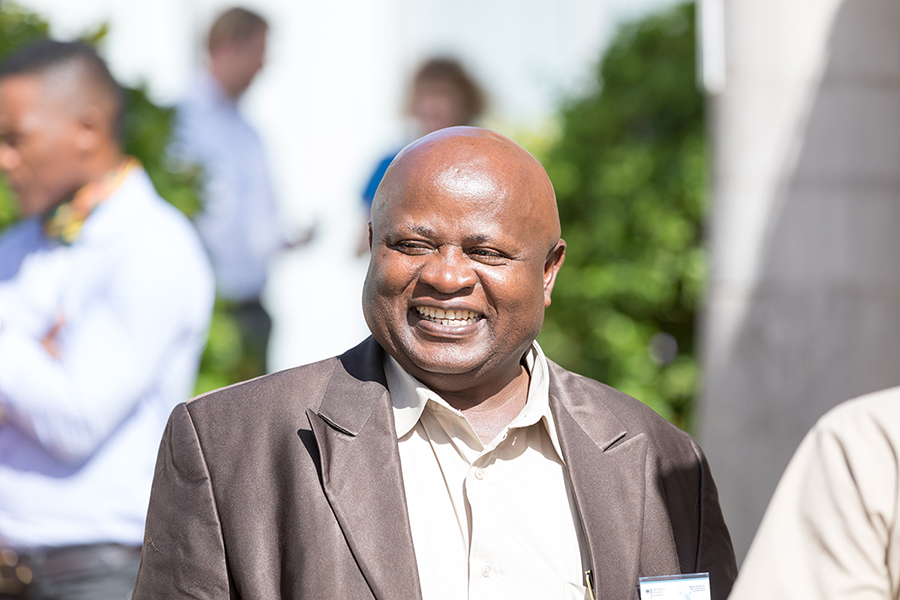Interview with Professor Samuel Wanji, who is leading a clinical trial in Cameroon on combating the awful tropical disease podoconiosis

Professor Samuel Wanji, infectious diseases specialist, Head of the Department of Microbiology and Parasitology and Executive Director of the Research Foundation in Tropical Diseases and Environment at the University of Buea, Cameroon
BMBF / Pavel Desort
Professor Wanji, it wasn’t easy to get this TAKeOFF study off the ground – what is your main objective and what are you particularly proud of?
Professor Wanji: Our work has given people new hope – not only in rural communities, but throughout the Cameroonian health system, we are drawing attention to this disease that has been neglected for so long, showing that there are ways to alleviate and cure it. The dedicated work of our team members on the ground has successfully changed how people view the disease and made visible improvements to the lives of our patients. The close cooperation between the University of Buea and Cameroon’s Ministry of Public Health has made this work easier and also helped to establish scientific capacities which will be of great benefit to us in our ongoing research.
What are the most important findings from your work so far?
Professor Wanji: Building on earlier studies, we have observed that, in Cameroon, podoconiosis in particular is widespread. This is a form of lymphoedema that is not caused by the filaria worms, but instead by microparticles that are picked up by people walking barefoot and then penetrate the skin, entering the tissue. The drugs used to date barely have any effect – we need a new approach to diagnosis and treatment.
Your research work focusses heavily on the antibiotic doxycycline – could this drug help make significant progress in the fight against podoconiosis?
Professor Wanji: Administering a daily dose of 200 milligrams of doxycycline over a period of six weeks can improve the health of many patients in the early phase of lymphatic filariasis and can even completely halt the progress of the disease. It can also alleviate the fever and pain attacks that many patients suffer from and reduce their effects. With our research, we want to demonstrate this in cases of podoconiosis as well.
What do you hope for the outcome of your trial?
Professor Wanji: The World Health Organization (WHO) has undertaken massive and successful efforts to push back the global spread of lymphatic filariasis. Our aim is for the WHO recommendations to be altered to include the administration of doxycycline, which is a comparatively cost-efficient antibiotic that is already used in industrial countries to treat Lyme disease or for malaria prophylaxis.
TAKeOFF – Tackling the Obstacles to Fight Filariasis
Under the TAKeOFF project, which tackles the obstacles to fighting filariasis and podoconiosis and is one of a total of five Research Networks for Health Innovations in Sub-Saharan Africa, infection research experts from three African countries (Ghana, Tanzania and Cameroon) have joined forces with partners from Germany. The TAKeOFF network works to establish a platform that addresses both clinical trials and research on filarial worms and patient needs (F-CuRE; Filarial Clinical Trial & Research Platform). The network also aims to support the training of local researchers and clinics. The Federal Ministry of Education and Research (BMBF) will provide the project with more than eight million euros in funding until 2021. Professor Alexander Yaw Debrah from the Kwame Nkrumah University of Science and Technology (KNUST) in Ghana is the network coordinator and Professor Achim Hörauf, Director of the Institute of Medical Microbiology, Immunology and Parasitology at the University Hospital Bonn, is the co-coordinator on the German side.